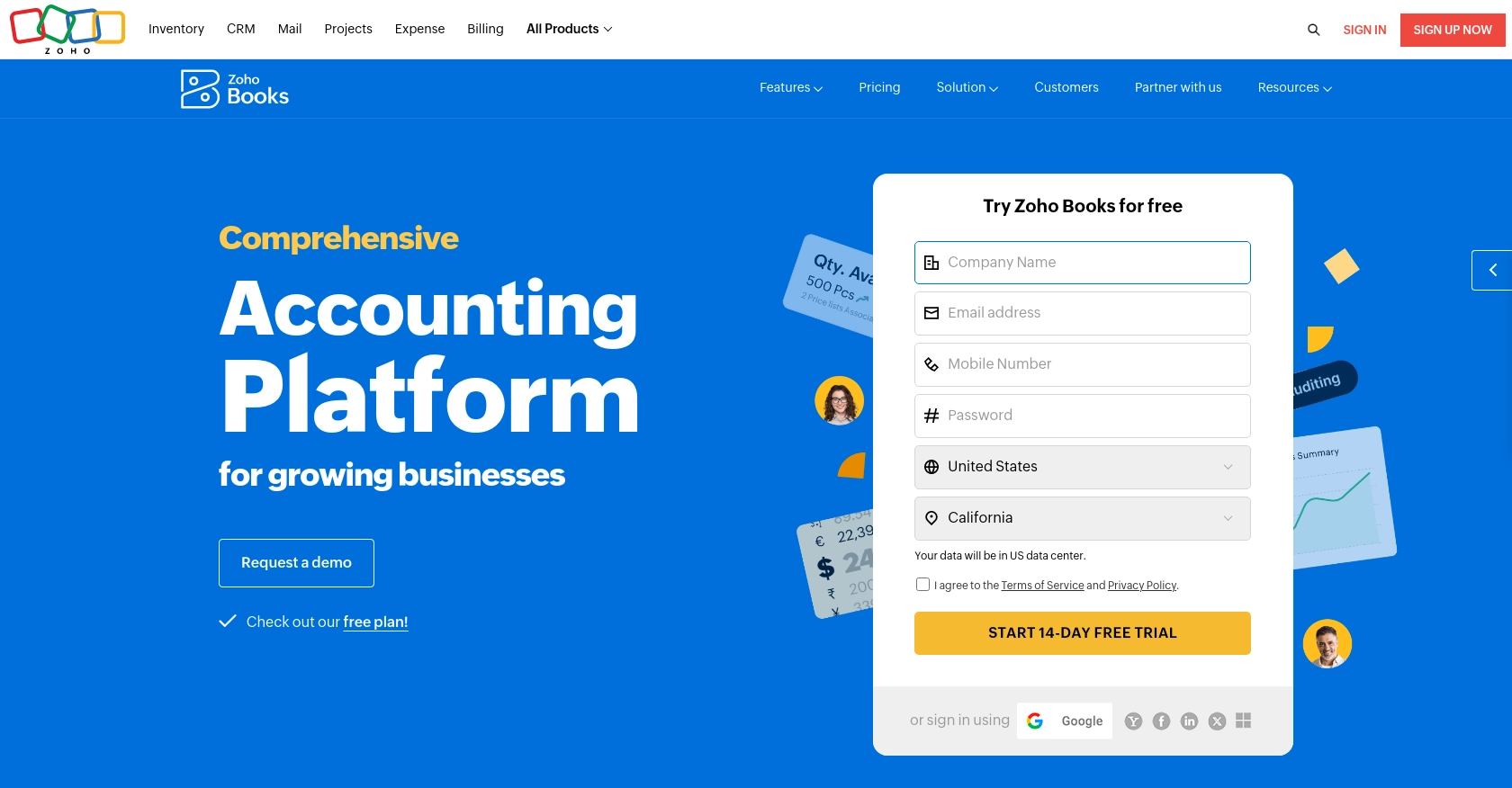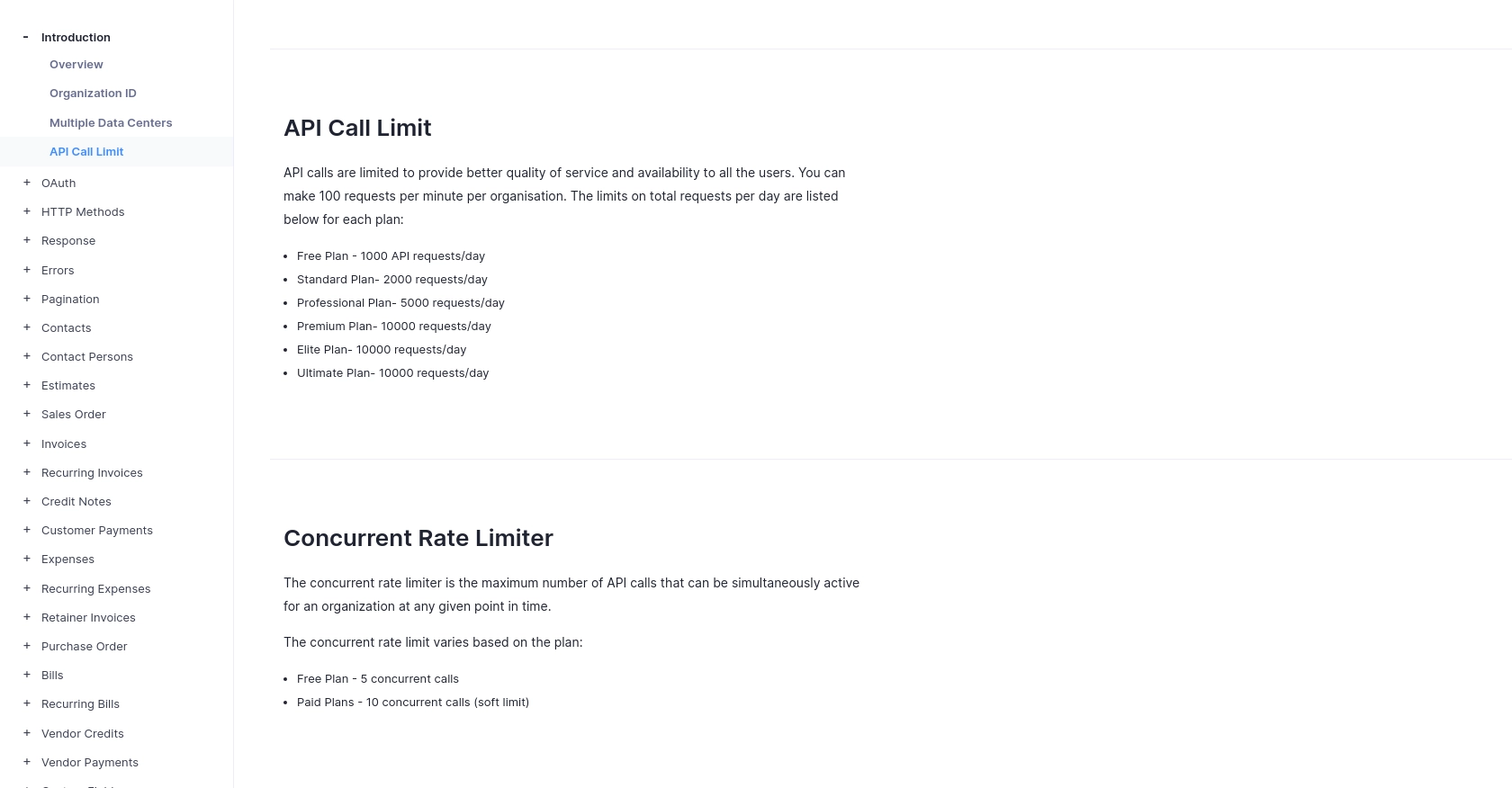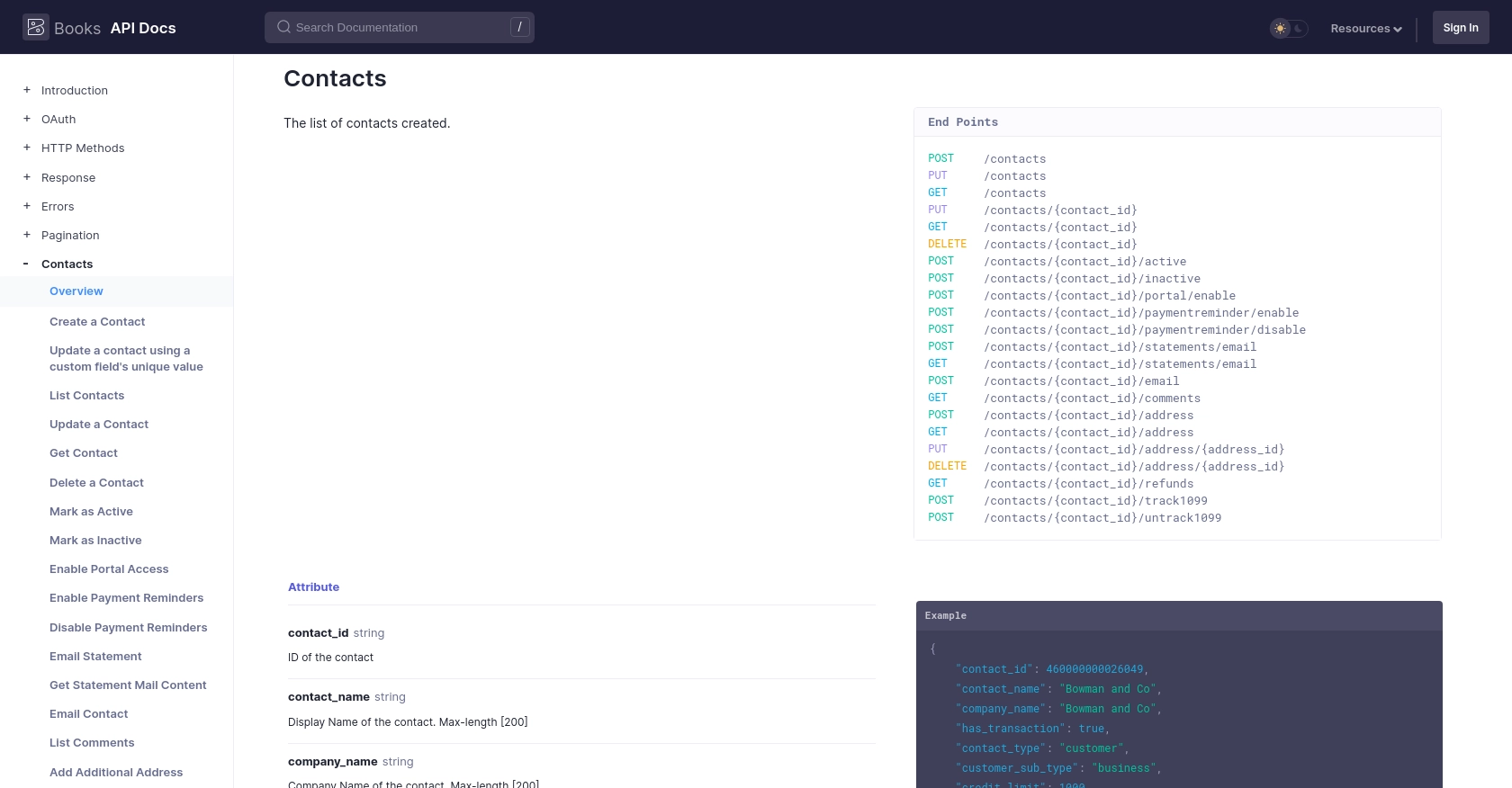Using the Zoho Books API to Get Vendors (with PHP examples)

Introduction to Zoho Books API Integration
Zoho Books is a comprehensive online accounting software designed to streamline financial management for businesses. It offers a wide range of features, including invoicing, expense tracking, and inventory management, making it a popular choice for businesses looking to automate their accounting processes.
Integrating with the Zoho Books API allows developers to access and manage financial data programmatically. This can be particularly useful for automating tasks such as retrieving vendor information, which can help businesses maintain up-to-date records and streamline their procurement processes. For example, a developer might use the Zoho Books API to automatically fetch vendor details and update them in a central database, ensuring consistency across platforms.
Setting Up Your Zoho Books Test/Sandbox Account
Before you can start integrating with the Zoho Books API, you'll need to set up a test or sandbox account. This will allow you to safely experiment with API calls without affecting your live data.
Creating a Zoho Books Account
If you don't already have a Zoho Books account, you can sign up for a free trial on the Zoho Books website. Follow the instructions to create your account and log in.
Registering a New Client in Zoho's Developer Console
To use the Zoho Books API, you'll need to register your application to obtain OAuth credentials. Follow these steps:
- Visit the Zoho Developer Console and log in with your Zoho account.
- Click on Add Client ID to register a new application.
- Fill in the required details, such as the application name and redirect URI.
- Upon successful registration, you'll receive a Client ID and Client Secret. Keep these credentials secure as they are essential for authentication.
Generating OAuth Tokens for Zoho Books API
Zoho Books uses OAuth 2.0 for authentication. Follow these steps to generate the necessary tokens:
- Redirect users to the following authorization URL with the required parameters:
- After user consent, Zoho will redirect to your specified URI with a
codeparameter. - Exchange this code for an access token by making a POST request:
- The response will include both an
access_tokenand arefresh_token. The access token is valid for a limited time, while the refresh token can be used to obtain new access tokens.
https://accounts.zoho.com/oauth/v2/auth?scope=ZohoBooks.fullaccess.all&client_id=YOUR_CLIENT_ID&response_type=code&redirect_uri=YOUR_REDIRECT_URI&access_type=offlinehttps://accounts.zoho.com/oauth/v2/token?code=YOUR_CODE&client_id=YOUR_CLIENT_ID&client_secret=YOUR_CLIENT_SECRET&redirect_uri=YOUR_REDIRECT_URI&grant_type=authorization_codeManaging API Call Limits and Rate Limiting
Zoho Books imposes limits on API calls to ensure quality of service. You can make up to 100 requests per minute per organization. Daily limits vary by plan, with the Free Plan allowing 1000 requests per day. For more details, refer to the API Call Limit documentation.
With your Zoho Books account and OAuth credentials set up, you're ready to start making API calls to retrieve vendor information.

sbb-itb-96038d7
Making API Calls to Retrieve Vendor Information from Zoho Books Using PHP
To interact with the Zoho Books API and retrieve vendor information, you need to make HTTP requests using PHP. This section will guide you through the process of setting up your environment, writing the necessary code, and handling responses effectively.
Setting Up Your PHP Environment for Zoho Books API Integration
Before making API calls, ensure your PHP environment is properly configured. You will need:
- PHP 7.4 or later
- cURL extension enabled
To install the cURL extension, you can use the following command:
sudo apt-get install php-curlWriting PHP Code to Fetch Vendor Information from Zoho Books
Once your environment is ready, you can write PHP code to make API requests to Zoho Books. The following example demonstrates how to retrieve vendor information:
<?php
// Set the API endpoint and organization ID
$endpoint = "https://www.zohoapis.com/books/v3/contacts";
$organizationId = "YOUR_ORGANIZATION_ID";
// Set the headers, including the access token
$headers = [
"Authorization: Zoho-oauthtoken YOUR_ACCESS_TOKEN",
"Content-Type: application/json"
];
// Initialize cURL session
$ch = curl_init();
// Set cURL options
curl_setopt($ch, CURLOPT_URL, "$endpoint?organization_id=$organizationId&contact_type=vendors");
curl_setopt($ch, CURLOPT_RETURNTRANSFER, true);
curl_setopt($ch, CURLOPT_HTTPHEADER, $headers);
// Execute cURL request
$response = curl_exec($ch);
// Check for errors
if (curl_errno($ch)) {
echo 'Error:' . curl_error($ch);
} else {
// Decode the JSON response
$data = json_decode($response, true);
foreach ($data['contacts'] as $vendor) {
echo "Vendor Name: " . $vendor['contact_name'] . "\n";
}
}
// Close cURL session
curl_close($ch);
?>
Replace YOUR_ORGANIZATION_ID and YOUR_ACCESS_TOKEN with your actual organization ID and access token. The code initializes a cURL session, sets the necessary headers, and makes a GET request to the Zoho Books API to fetch vendor information.
Handling API Responses and Errors
After executing the API call, it's crucial to handle the response properly. The example above checks for cURL errors and decodes the JSON response to extract vendor details. If the request is successful, you will see a list of vendor names.
Refer to the Zoho Books API Error Documentation for more information on handling specific error codes, such as 401 for unauthorized access or 429 for rate limit exceeded.
Verifying API Call Success in Zoho Books Sandbox
To verify that your API call was successful, log in to your Zoho Books sandbox account and check the vendor list. The data retrieved by your PHP script should match the vendor information in the sandbox.
By following these steps, you can efficiently retrieve vendor information from Zoho Books using PHP, ensuring your integration is both robust and reliable.

Conclusion and Best Practices for Zoho Books API Integration
Integrating with the Zoho Books API to retrieve vendor information using PHP offers a powerful way to automate and streamline your business's financial management processes. By following the steps outlined in this guide, you can effectively set up your environment, authenticate using OAuth, and make API calls to access vendor data.
Best Practices for Managing Zoho Books API Integrations
- Securely Store Credentials: Ensure that your Client ID, Client Secret, and access tokens are stored securely and not exposed in your codebase. Consider using environment variables or secure vaults.
- Handle Rate Limiting: Be mindful of Zoho Books' API rate limits. Implement retry logic with exponential backoff to handle 429 errors gracefully. For more details, refer to the API Call Limit documentation.
- Standardize Data Formats: When retrieving vendor information, standardize the data fields to ensure consistency across your systems. This will facilitate easier data manipulation and reporting.
- Monitor API Usage: Regularly monitor your API usage and error logs to identify any potential issues early. This will help maintain a smooth integration experience.
Enhancing Your Integration Experience with Endgrate
While integrating with Zoho Books API can be highly beneficial, managing multiple integrations can become complex and time-consuming. This is where Endgrate can help. By using Endgrate, you can:
- Save time and resources by outsourcing integrations, allowing you to focus on your core product development.
- Build once for each use case, reducing the need for multiple integration efforts across different platforms.
- Provide an intuitive and seamless integration experience for your customers, enhancing their satisfaction and engagement.
Explore how Endgrate can simplify your integration processes by visiting Endgrate's website and discover the benefits of a unified API solution.
Read More
- https://endgrate.com/provider/zohobooks
- https://www.zoho.com/books/api/v3/introduction/#api-call-limit
- https://www.zoho.com/books/api/v3/oauth/#overview
- https://www.zoho.com/books/api/v3/errors/#overview
- https://www.zoho.com/books/api/v3/pagination/#overview
- https://www.zoho.com/books/api/v3/contacts/#overview
Ready to get started?
